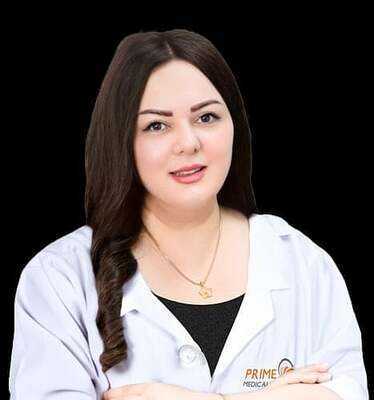
can actually improve skin appearance, according to doctors in the UAE.
Fasting is also believed to help with hormonal balance, boost cell regeneration, and improve gut health — all of which contribute to a more radiant complexion.
Doctors said these benefits come from the body’s natural healing processes, which are activated during fasting, allowing it to focus on cellular repair and rejuvenation.
Depending on the sighting of the crescent, the holy month is by March 1.
Dr Ibtisam Antoun Rahmeh, Specialist Dermatologist and cosmetologist Prime medical center Motor city branch, said, “Fasting during Ramadan can have both direct and indirect effects on overall health, including skin health. Fasting has been shown to give the body a chance to detox and rest. During this time, the body focuses on repair processes. For skin health, this could mean an improvement in circulation, and the body may expel toxins more effectively.”

Dr Ibtisam Antoun Rahmeh
However, this comes with a . “If hydration or nutrition is insufficient, the body may struggle to maintain healthy skin,” added Rahmeh.
Healthcare professionals explained can affect hormone levels, including insulin and cortisol, which influence skin conditions. It may reduce insulin spikes and inflammation that could contribute to acne.
“Fasting activates autophagy, a process where the body breaks down and recycles old or damaged cells, which could improve skin appearance by potentially helping in the repair of damaged skin cells,” he added.
Digestive system restsExperts explained that fasting also gives the digestive system the time to rest, which might benefit skin conditions like acne or eczema, which are sometimes linked to gut health.
Dr Nazia Saad, GP Aesthetics/Dermatologist, International Modern Hospital Dubai, said, “The skin, being the body’s largest organ, also benefits from these systemic improvements. Fasting can help regulate insulin levels, reduce oxidative stress, and lower inflammation, which collectively contribute to healthier, clearer skin. By regulating blood sugar and insulin spikes, fasting can reduce oil production and prevent breakouts.”

Dr Nazia Saad
Avoid sugary foods, drink plenty of waterMedics reiterated that as limits fluid intake during daylight hours, it is important to compensate the same during suhoor and iftar by drinking plenty of water and consuming hydrating foods like cucumber, watermelon, and yoghurt.
They emphasised dehydration can lead to dullness, fine lines, and irritation.
Saad added, “Focus on foods high in antioxidants, vitamins A, C, and E, and omega-3 fatty acids to nourish the skin. Avoid sugary and processed foods — excess sugar can increase inflammation and breakouts.”
Doctors also pointed out following a gentle skincare routine is important. People must opt for hydrating moisturizers and avoid harsh exfoliants to prevent irritation.
Dr Maab Murshid Abdelrahim, Specialist Dermatology, Burjeel Medical Center, Al Shamkha, said, “A simple yet effective skincare routine can help counteract the effects of fasting on the skin. Regular moisturising with hydrating ingredients like hyaluronic acid and glycerin is key. Using a gentle cleanser to remove dirt and excess oil, applying sunscreen during the day, and incorporating overnight hydrating masks can help maintain skin balance. Avoiding long hot showers and harsh exfoliants can also prevent excessive dryness.”